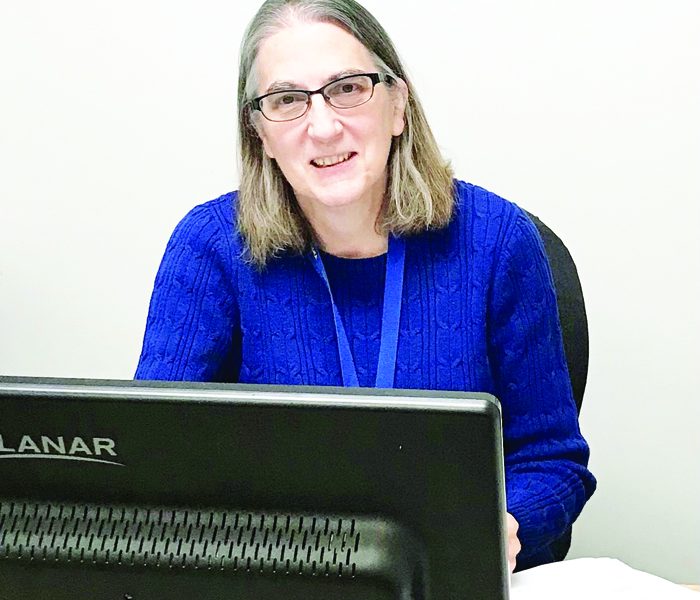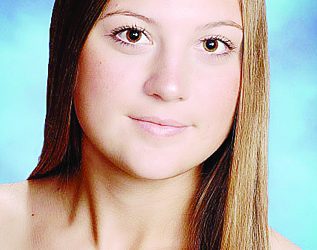By Shirley Shuman
Forty years ago, a young woman, a recent graduate from State College, applied for a position in the lab at Braxton County Memorial Hospital. She was hired….as lab manager. Kim Frazier, who just retired from forty years in the BCMH lab, started as lab manager and spent her whole career in that role. “My title changed some over the years,” she said, “but it always meant ‘lab manager.’” In the lab, Frazier dealt with many challenges and many changes, but she feels strongly that she and her “family” of workers always dealt well with them.
Some changes came with the growth of the hospital. For example, she began with two lab workers besides herself—a phlebotomist and a lab technician. Before she retired, the lab had 15 employees. For several years, there was no helicopter service, so maintaining the blood bank played a much bigger role when Frazier began at BCMH. Of course another major change came in record keeping during her 40 years. For many years, all records were kept on paper. Now they are secured electronically. Then there have been the influence of two major hospital systems. As Frazier put it, “We were married to CAMC for a time, divorced them, and then married WVUM.”
Two of the biggest challenges she—and the entire hospital—faced during her time there were the emergence of HIV and several years later, COVID. “HIV coming to the forefront prompted much more personal protection than we had used before,” she said. “COVID, several years later, increased that practice.” The recent retiree named COVID as the bigger challenge of the two.
Frazier enjoyed her work at BCMH, and what she liked best was “the family atmosphere.” She maintained, “It has always been there,” and in a letter which she wrote to the entire staff of the hospital upon her retirement, she referred to that family atmosphere. In a portion of that letter, she noted: “My life has been intricately woven with milestones of my personal life intertwined with a twenty-four-seven responsibility for the BCMH laboratory. So, during my tenure, the employees and staff of BCMH have become my surrogate family.” In the letter she discussed losses and joys that she and the “family” had experienced.
Frazier commented that she always tried to instill in her employees that “this is a small area so it’s truly important that you treat everyone as family.” She feels strongly that she succeeded in that endeavor and that the same policy can be seen throughout the hospital. She likes to think staffers treat each patient as if that patient were a relative.
Another excerpt from the letter reflects this woman’s respect for the hospital in which she worked. It reads, “One detail I take away from BCMH is that I have seen miracles performed here. I have seen people who survived major accidents whose likelihood of doing so was nil as they entered our doors. I saw my father survive his ‘widow-maker’ heart attack because of the quick actions of our staff, and I saw my stepfather-in-law leave in a helicopter with an ‘AAA’ and make it to Ruby and survive. I have seen diagnoses of diseases made here that were quite rare and care given to those people as they battled those diseases and won their battle.”
With her retirement, Kim Frazier takes multiple memories from her years at BCMH. She will always cherish them. Now she and her husband John are ready to build more. They live on a small farm with two horses. The two both like history, and she said they “have been traipsing all over West Virginia to see and feel where their ancestors lived.” She calls it “following original family paths.”


